Seven year-old Linux vulnerability now patched

An old vulnerability was just discovered in the Linux kernel, potentially allowing hackers to gain privilege escalation, or cause a denial of service. The vulnerability was quickly fixed and there have been no signs of it in the wild, although that does not necessarily mean it went unnoticed.
According to Positive Technologies expert Alexander Popov, the CVE-2017-2636 vulnerability is seven years old and has affected the majority of popular Linux distributions, including RHEL 6/7, Fedora, SuSE, Debian, and Ubuntu.
Kdenlive is a powerful video editor for… Windows?

Kdenlive has been a popular non-linear video editor in the Linux world for a very long time, but the developers have also recently released a first Windows port.
The build doesn't skimp on functions: there's a full multi-track timeline and an array of effects and transitions to explore.
Canonical announces Ubuntu Linux 12.04 ESM (Extended Security Maintenance)

On April 25th, Ubuntu Linux 12.04 LTS will no longer be supported by Canonical. Why? That is the 5 year anniversary of the release, which is the amount of support time given to an LTS (Long Term Support) version of the Linux distribution.
For many home users, this really doesn't matter, as they have probably already upgraded to a newer version. Unfortunately, some businesses do not upgrade as regularly. In fact, some organizations may not be ready to move on from Ubuntu 12.04. Tough luck? Not at all. Today, Canonical introduces Ubuntu Linux 12.04 ESM. This "Extended Security Maintenance" release is not free, however -- organizations must pay for the extended support.
Refreshed stable Linux Mint Debian Edition (LMDE) 2 'Betsy' ISO images now available
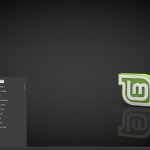
Linux Mint is one of the most popular Linux-based desktop operating systems. With that said, did you know there are two versions of the OS? No, I am not talking about the multiple desktop environments, such as Cinnamon, MATE, and KDE. There are actually two entirely different operating systems that share the Mint name. The normal version of Linux Mint is based on Ubuntu, while a lesser known version, LMDE, is based on Debian. Is it confusing? Absolutely. A waste of resources? Probably. But hey, that's the state of Linux on the desktop nowadays.
Linux Mint Debian Edition 2 'Betsy' launched way back in 2015, and hasn't needed a major base upgrade. Instead, LMDE has received a steady stream of updates over the last two years. The problem? The ISO images were very outdated, meaning a fresh install required a lot of updates. As a way to improve the experience, the Linux Mint team has decided to refresh the installation media. Today, refreshed stable Linux Mint Debian Edition (LMDE) 2 'Betsy' ISO images become available, with the choice of either Cinnamon or MATE.
Vault 7 fallout: Linux Foundation says it's "not surprising" Linux is targeted

In the wake of WikiLeaks' Vault 7 CIA leaks, Apple has been quick to point out that vulnerabilities mentioned in the documents have already been addressed. Microsoft and Samsung have said they are "looking into" things, and now the Linux Foundation has spoken out.
Nicko van Someren, Chief Technology Officer at The Linux Foundation says that while it is "not surprising" that Linux would find itself a target, the open source project has a very fast release cycle, meaning that kernel updates are released every few days to address issues that are found.
Microsoft and Samsung react to Vault 7 CIA leaks -- Google, Linux Foundation and others remain silent

The Vault 7 document and code cache released yesterday by WikiLeaks revealed that many big software companies were being actively exploited by the CIA. Apple, Microsoft, Google, Samsung, and even Linux were all named as having vulnerabilities that could be used for surveillance.
Apple was one of the first of the companies mentioned in the documents to speak out and address concerns and security. But while the iPhone manufacturer has quickly indicated that it has fixed "many" of the vulnerabilities, Microsoft and Samsung have merely said they are looking into the issues raised. Other companies and groups mentioned have made no comment at all.
Arch Linux-based Manjaro 17.0 'Gellivara' now available with choice of KDE or Xfce desktops
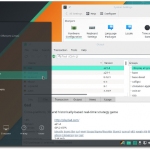
Arch is a very cool Linux distribution, but it isn't for the faint of heart. Once it is installed and running, it can be very rewarding. Unfortunately, it is the installation that can be a pain point. Yeah, installing Arch from scratch can be a good learning experience, but some folks just want to use an operating system as a tool -- not to get an education.
Luckily, some distributions offer a friendlier installer with an Arch base -- the best of both worlds. One such popular Linux distro that uses Arch as a base is the wonderful Manjaro. Today, the operating system reaches version 17.0. Code-named "Gellivara," it features a refreshed settings manager, offering a more attractive design. Users can choose between two desktop environments -- Xfce and KDE.
VMware affirms its open source commitment by becoming Gold Linux Foundation member

Linux and other open source projects are changing the world. If you don't believe it, just think of Android -- the most used mobile operating system is a Linux distro. Not to mention, many consumer products license open source code. Heck, even major companies like Microsoft and Apple are embracing open source nowadays.
Today, VMware shows its commitment to the open source community by becoming a Linux Foundation Gold Member. The company joins many other successful companies at that level, such as Facebook, Toshiba, and Toyota, to name a few.
Get 'Learning Linux Shell Scripting' ebook ($36 Value) FREE for a limited time

If you're looking for a way to master Linux shell scripting (in any Linux distro or Windows 10), then this ebook from Packt Publishing is an essential read.
The book, which covers Bash -- GNU Bourne Again SHell -- usually retails for $36, but for a limited time you can download the full ebook version for free.
Microsoft releases Skype for Linux 5.0 Beta
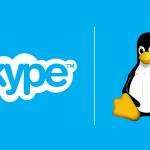
While Skype in general is in desperate need of some TLC by Microsoft, the communication solution is still rather wonderful. The cross-platform nature makes it a wise choice for both personal and business use. In other words, you never have to worry if a family member, client, or co-worker is using a device that is Skype-compatible -- most modern devices and computers are.
Yes, Microsoft even makes Skype available for desktop Linux-based operating systems. With that said, the most recent usable version was merely an Alpha -- functional, but hardly bug free. Today, this changes, as Skype for Linux 5.0 graduates to Beta.
FriendlyElec releases Ubuntu Linux-ready NanoPi M1 Plus -- a $30 Raspberry Pi killer
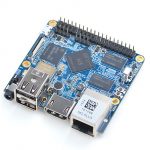
The Raspberry Pi line of mini computers -- including the all-new Pi Zero W -- are wonderful devices for what they are. Quite frankly, they have inspired many young people to learn about programming, while helping makers to create some really cool projects. With that said, the Pi computers are not the only System on a Chip solutions on the market. Actually, there are more powerful ARM-based offerings available. The problem? They are often radically more expensive than Raspberry Pi.
However, there is a new Raspberry Pi competitor that is quite affordable. In fact, some folks may view it as a Pi-killer. The $30 FriendlyElec NanoPi M1 Plus has an arguably superior design and layout, plus important integrated features like Wi-Fi and Bluetooth. It even has an IR receiver, onboard microphone, 8GB storage, and both power and reset buttons. Best of all? It is ready to run Debian, Ubuntu Core, and Ubuntu Mate from the start.
Ubuntu Linux-maker Canonical wins award for convergence efforts

In computing, convergence -- having a single device to serve many roles -- is a popular idea. Using the power of a smartphone to serve as a desktop, for instance, is a great way to save money and reduce waste. Unfortunately, there really have not been any successful convergence devices in practice. Microsoft famously tried with Windows 10 Mobile, but consumers didn't seem to care about Continuum.
Luckily, Canonical seems fairly unfazed, as the company continues to see Ubuntu as an operating system that can run on phones, tablets, laptops, desktops, and more. Like Windows 10 Mobile, Ubuntu phones have failed to pique the interest of consumers, but Linux-based solutions are arguably more appropriate for convergence thanks to the kernel's ability to work well on ARM. To highlight the success of Ubuntu in this regard, Canonical has been given an award at Mobile World Congress 2017.
Zorin OS 12.1 Ubuntu-based Linux distro is here for Microsoft Windows 10 switchers
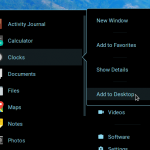
While Windows 10 is a great operating system, it isn't perfect for everyone. In fact, Microsoft's offering is viewed by some to be bloated and complicated. Depending on your needs, yeah, I suppose I understand that. After all, if you live in the web browser, and don't need Windows programs, a Linux-based desktop OS could be a better choice, as it might perform better on lesser hardware. Not to mention, there are far fewer malware threats on Linux than on Windows.
If you have been thinking of switching to Linux, there are a lot of choices nowadays, but there is one such operating system designed for that purpose. Zorin OS aims to be familiar to Windows users, while its Ubuntu base makes it easy to manage and install packages. Today, Zorin OS reaches version 12.1. While it is not a massive update by any means, existing users should definitely upgrade. If you have never tried Zorin OS before, now is as good a time as any.
Ubuntu Core Linux comes to i.MX6-powered IoT-friendly TS-4900 Computer On Module
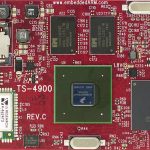
One of the best things about the Linux kernel (and associated operating systems) is the ability to work on various hardware types, including ARM. Microsoft's operating systems, by comparison, are far more narrow. True, there is the lightweight Windows 10 IoT for ARM boards, but it is hardly a factor nowadays.
Today, Ubuntu Core comes to the i.MX6-based and ARM-powered TS-4900 Computer on Module. While Android and other Linux options were already available for the IoT-friendly CoM, Ubuntu Core is still a major win. Canonical's revolutionary snap packages should work beautifully here.
Red Hat: 'use after free' vulnerability found in Linux kernel's DCCP protocol IPV6 implementation

Red Hat Product Security has published details of an "important" security vulnerability in the Linux kernel. The IPv6 implementation of the DCCP protocol means that it is possible for a local, unprivileged user to alter kernel memory and escalate their privileges.
Known as the "use-after-free" flaw, CVE-2017-6074 affects a number of Red Hat products including Red Hat Enterprise Linux 6, Red Hat Enterprise Linux 7 and Red Hat Openshift Online v2. Mitigating factors include the requirement for a potential attacker to have access to a local account on a machine, and for IPV6 to be enabled, but it is still something that will be of concern to Linux users.
© 1998-2025 BetaNews, Inc. All Rights Reserved. Privacy Policy - Cookie Policy.